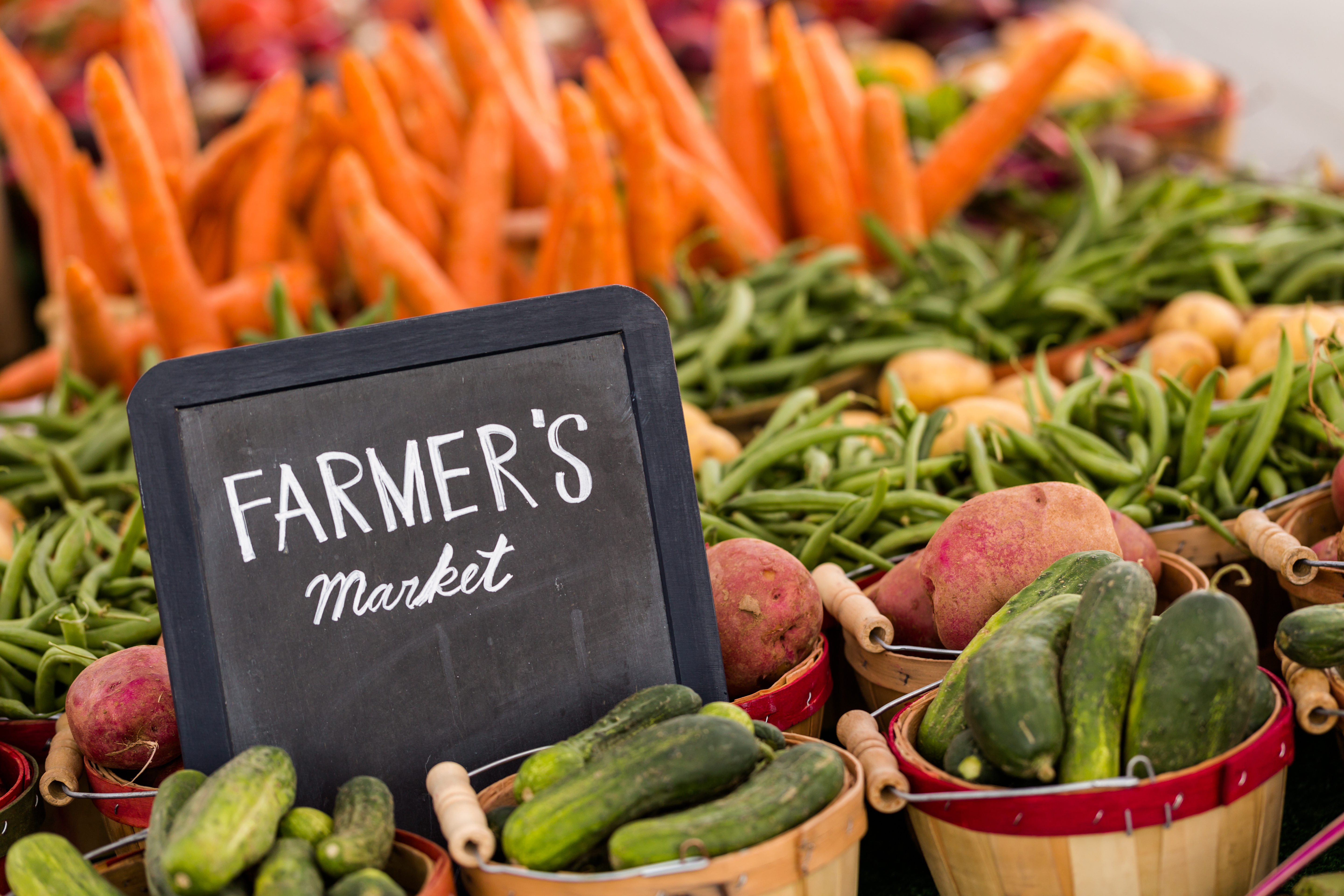By Michelle Superle
There’s no “I” in “team,” as the saying goes—except when there is.
Here at the Yarrow Ecovillage, our twenty-acre certified organic farm is governed by a legal cooperative structure and managed by our Farm Team. But the farm is actually worked by a dozen farmers who farm individually, leasing their own separate plots to grow a wide variety of crops for their own various purposes, and selling their products independently.
These individual farmers are not alone, though. Beyond providing support to one another, they are also promised support from every resident of the Groundswell Cohousing community—over a hundred people who live at the Yarrow Ecovillage. Each resident agrees to provide five hours of service to the farm annually. And since most of the farmers live at the Ecovillage, their colleagues and helpers are also their neighbours.
The roots of this unique arrangement date back to 2003. That’s when Michael and Suzanne Hale collaborated with an idealistic group of would-be farmers to envision how the twenty-five-acre parcel of land on Yarrow Central Road might grow into a sustainable development that could both house and feed people. When planning the farm itself, their vision was to marry organic growing techniques with permaculture design. In 2004 the original Farm Team came into being with 18 visionaries who shared big dreams, high hopes, and even higher ideals. Few had farming experience. Most had day jobs.
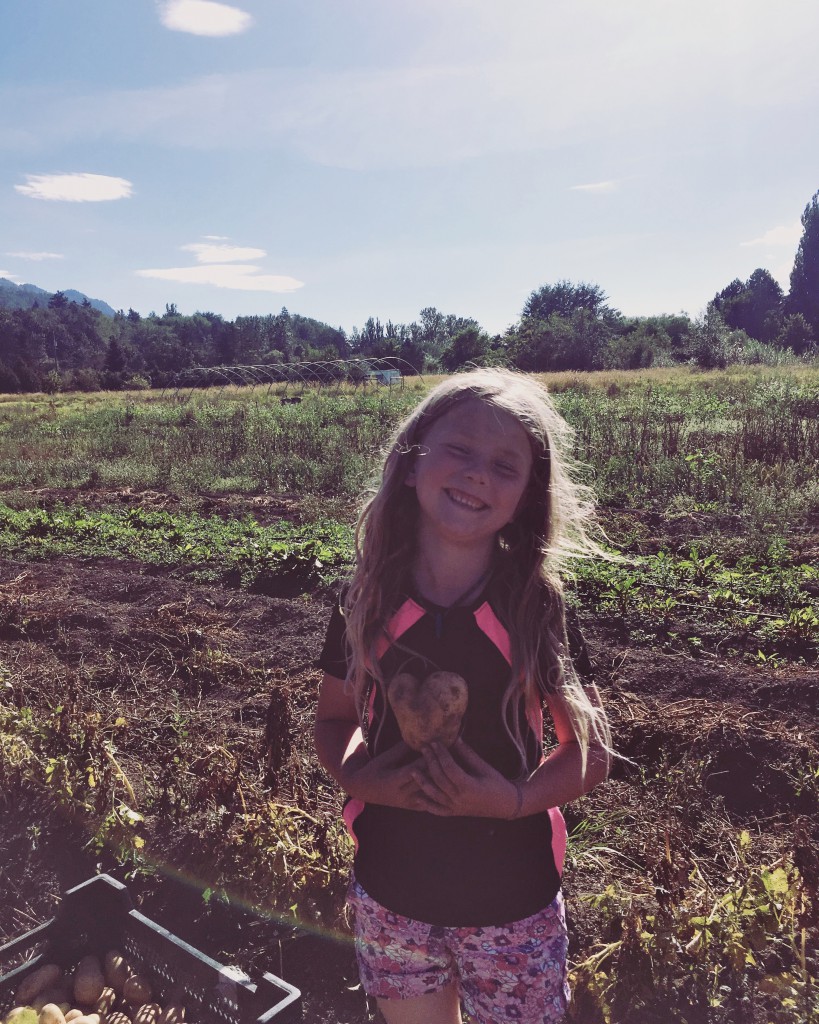
A former dairy farm, the property boasted rich soil and flat terrain—perfect for growing the kinds of vegetable crops the farmers knew would be both good for the earth and sought after by customers. Unfortunately, since the property was surrounded by conventional farms, it also boasted perfect refuge for every pest in Yarrow when the new team started farming organically. The early days were plagued by, if not locusts, then many of their cousins. Endless hours of manual pest control ensued.
Soon the Farm Team dwindled to a mere three members. But those members worked tirelessly—often literally from dawn to dusk, seven days a week. Suzanne became the farm manager. Bringing in enthusiastic, capable interns and family members enabled growing the farm into a viable operation. They also stewarded the transformation of the empty landscape and revitalization of the riparian zone with strategic deciduous plantings to create a richly biodiverse system with sufficient birds to control insect pests. When they retired from farming in 2009, the Farm Team was four members strong, and the Hales themselves were taking 60 crops to three Vancouver farmer’s markets throughout a lengthy growing season.
Over the years the land has been further developed by several incarnations of Farm Teams, each shaped by a unique group of individuals with a wide range of experience and goals. For example, in 2010 Tam Bonnemaison and Shauna Gavigan proposed a revised Whole Farm Plan that was spearheaded by the Farm Team in a vibrant workshop, and then approved by the Ecovillage Cooperative.
Meg Jordan has seen extensive transition on the farm. Today, she is the team’s organic certification manager, a position she accepted when another member moved away after a devastating growing season. Taking such an authoritative role astonished Meg, who hadn’t started farming until 2012, a year after she and her partner arrived at the Ecovillage. She’d hardly even begun to think of herself as a farmer. “I was the newbie! Then two years later I was the certification manager. Suddenly it was a whole different team than the one I joined, and I was the most experienced member.”
Meg had been drawn into farming by her interest in permaculture. A long-time gardener before arriving at the Ecovillage, she began to create her “food forest” on an awkward half-acre parcel wedged against the riparian zone. It might not have been very productive land for another farmer, but with permaculture design strategies Meg continues to foster biodiversity in the area, providing her household (and lucky friends, family, and neighbours) with kale, garlic, and fruit, plus a wide array of herbs for her many healing tinctures and teas.
The apprentice certification manager, Shane Rozeveld, provides another example of transition. Although Shane grew up on a cash crop farm in Michigan, he and his wife Emma didn’t arrive at the Ecovillage in 2014 planning to farm. They began growing a few vegetables for themselves in one of the community garden plots. The food was so delicious, and the process so rewarding, that they expanded into small-scale egg production, and then into a small market garden on a quarter-acre plot. Aslan Organics was born.
With the excitement of eating their own home-grown produce—not to mention local residents demanding more of their delicious eggs and veggies—they’ve expanded into a new two-acre plot that will supply the hybrid CSA program they’re launching at the Yarrow Farmer’s Market this spring. Although Shane worked for Crisp Organics last growing season, making the leap to his own full-time farming operation is daunting. “It’s terrifying! Hopefully we can do it. We have a lot to learn, but we’ve acquired so much knowledge already just by being here.”
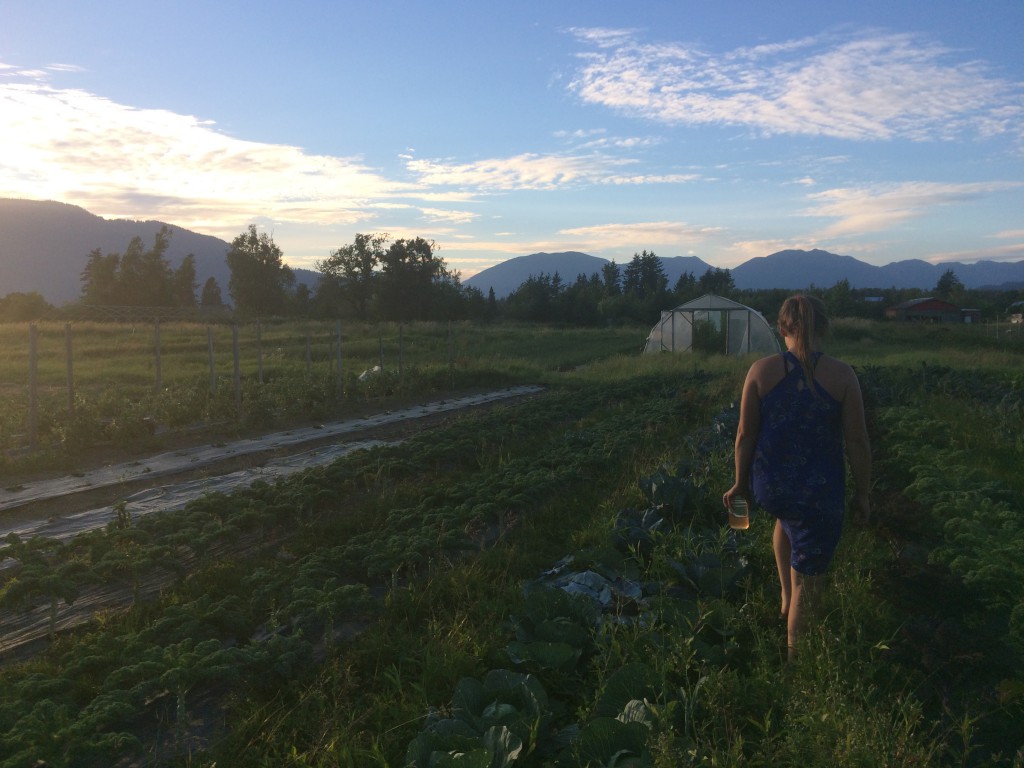
That’s what makes farming at the Ecovillage unique. “It’s a melting pot of information—that’s one of the reasons I’m so excited to farm here. I know that if I get stuck on a certain crop or facing a certain problem, I can literally walk over to another farmer in the next field. They’ll provide a viable solution, instant feedback, based on growing conditions right here. If I was on my own in another location, I’d have to call somebody or Google it. But Google might give me East Coast information that doesn’t help me in Chilliwack. Here, I’m immersed in a well of local information. Where else do you get that opportunity and experience?”
The current Farm Team co-chair, Miranda Chiasson, agrees. Miranda also grew up farming. She was always happily busy tending to the garden and Jersey cow on her family’s two-acre hobby farm and the trees on their five-acre horticulture farm, but she switched to growing vegetables after moving to the Ecovillage in 2015. Taking full advantage of the Ecovillage opportunities, she lived on site and worked for other farmers before starting her own business, Sweet Earth Farms, in spring 2017.
“I always wanted to do food. It’s a driving force for everything, and it’s why I’m here. Feeding people is my passion,” she laughs. “I wake up at four o’clock in the morning thinking about which crops to plant, where to put them, which variety of broccoli seeds to purchase.”
Her vocation sometimes threatens to become all-consuming, so she appreciates the support and understanding other Ecovillage farmers provide.
As co-chair, Miranda hopes to deepen such opportunities for support—and smooth the way for more. The role involves “facilitating, holding, hearing, sharing, finding direction, bringing together, and now revising the original farm vision” to become better aligned with how the Ecovillage and Groundswell have evolved over the past 15 years.
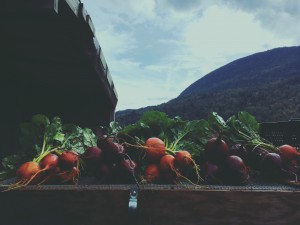
The team’s long-term goals are as lofty as their founders’. “I’d like to see us working more as a true cooperative, instead of individual farmers sharing infrastructure. We need to brand ourselves as a place that people know about. When we’re selling at markets customers get excited hearing about the Ecovillage.”
While the logistics of realizing such a vision are daunting, the Farm Team can take inspiration from its predecessors’ success. Soil is being built. Biodiversity is increasing, welcoming beneficial insects. The Farm Team is a dozen strong and growing.
Perhaps one of Meg’s favourite definitions of permaculture, from Patrick Whitefield, says it best: permaculture is about “creating dynamic systems based upon diversity and beneficial relationships.” That’s what we’re striving for here at the Yarrow Ecovillage farm.
So far, so good . . .
Where to Find the Farmers!
Miranda Chiasson (Sweet Earth Farms) at Riley Park Farmers Market (Vancouver), Cultus Lake Farmers Market and Wholesale to: Curly Kale Eatery (Chilliwack), Lepp Farm Market (Abbotsford) &Discovery Organics (Vancouver).
Meg Jordan (Stewart Creek Food Farm) sells plant starts and herbs at Riley Park Market (in Miranda’s stall).
Shane and Emma Rozeveld (Aslan Organics) at Yarrow Farmers Market Coquitlam Farmers Market.
Thu Nghiem (Chubby Roots) at Yarrow Ecovillage” and sells at Abbotsford Farm and Country Market.
[infobox title=’Michelle Superle’]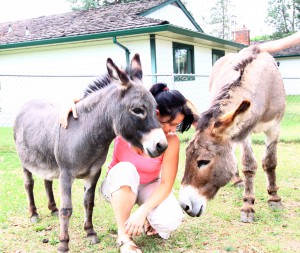 Michelle Superle teaches writing and literature courses in the English department at the University of the Fraser Valley. When she’s not reading and writing, she’s cooking and eating with respectful gusto. Farmers are her heroes![/infobox]
Michelle Superle teaches writing and literature courses in the English department at the University of the Fraser Valley. When she’s not reading and writing, she’s cooking and eating with respectful gusto. Farmers are her heroes![/infobox]









